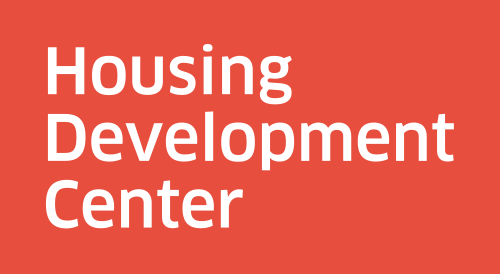Blackberry Hill Apartments
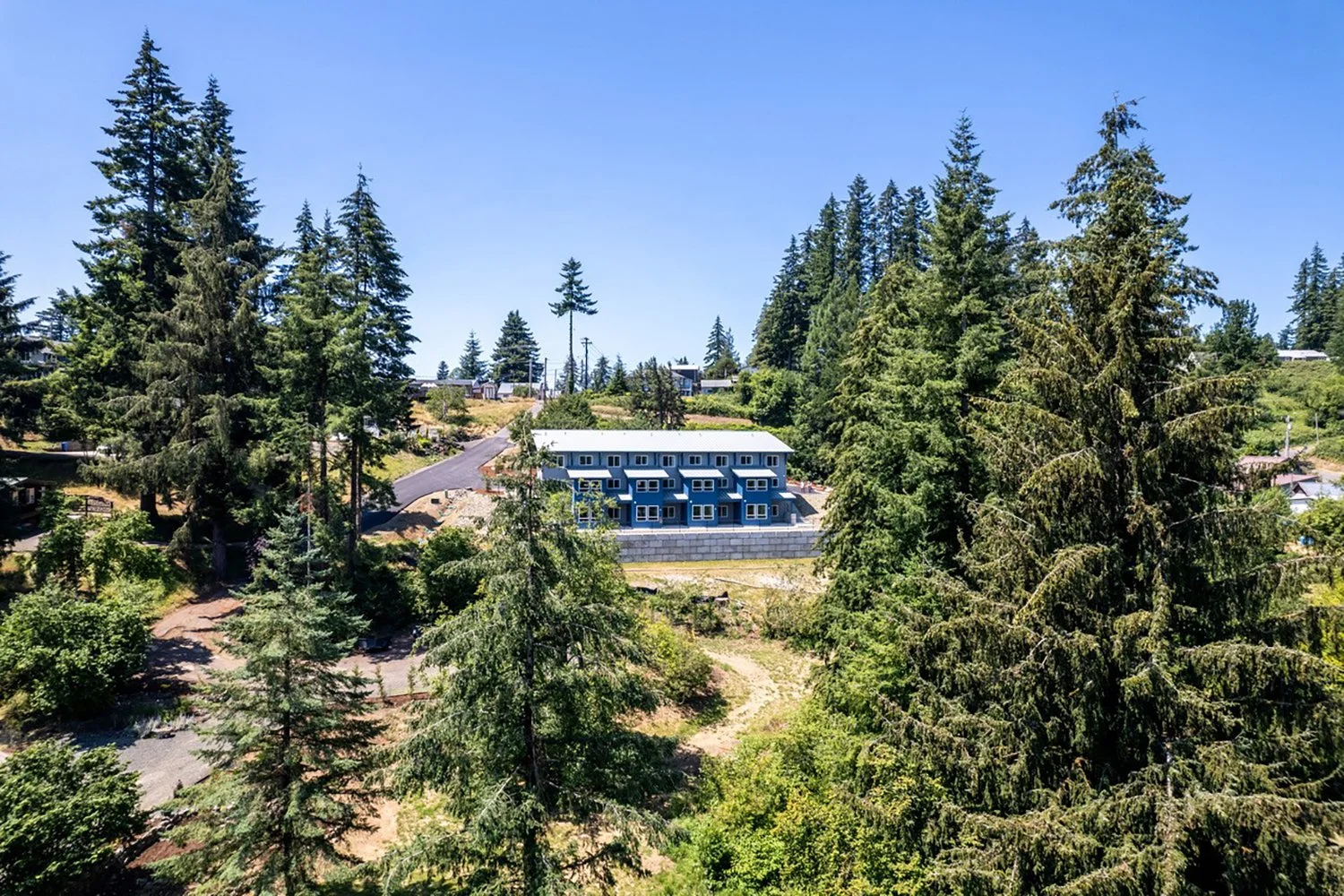
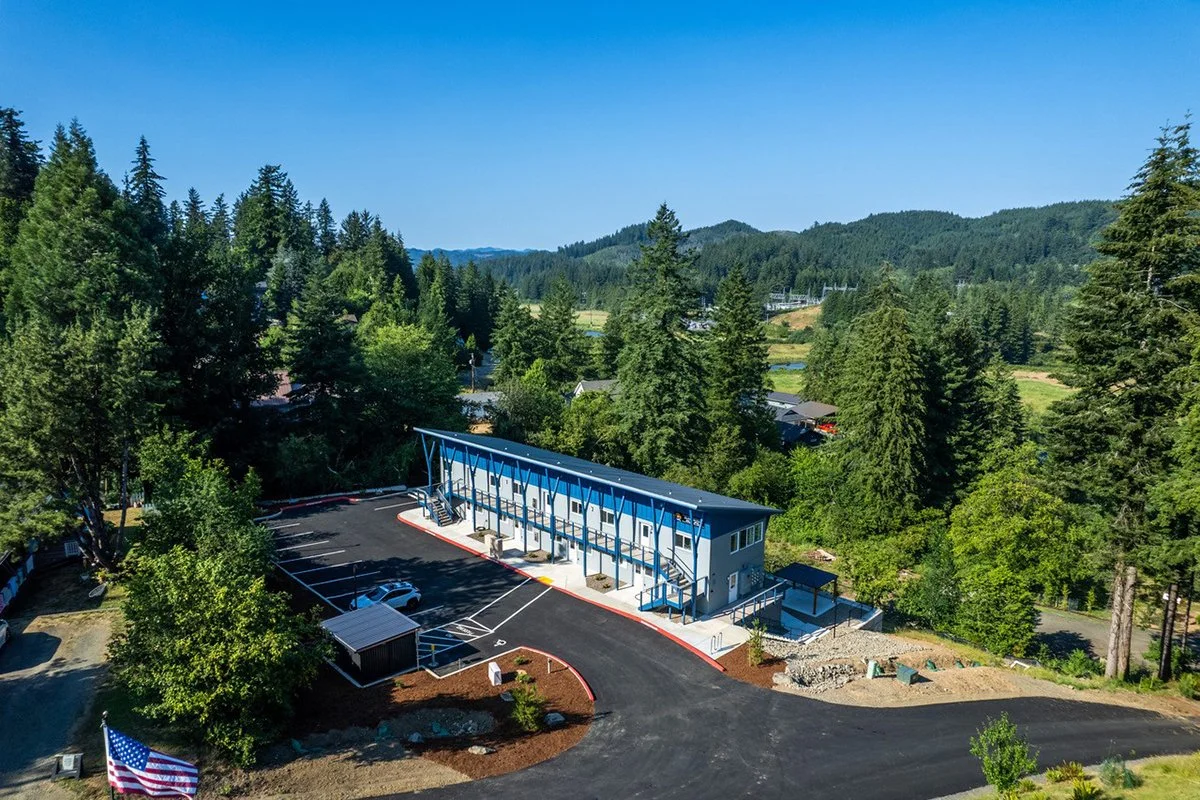
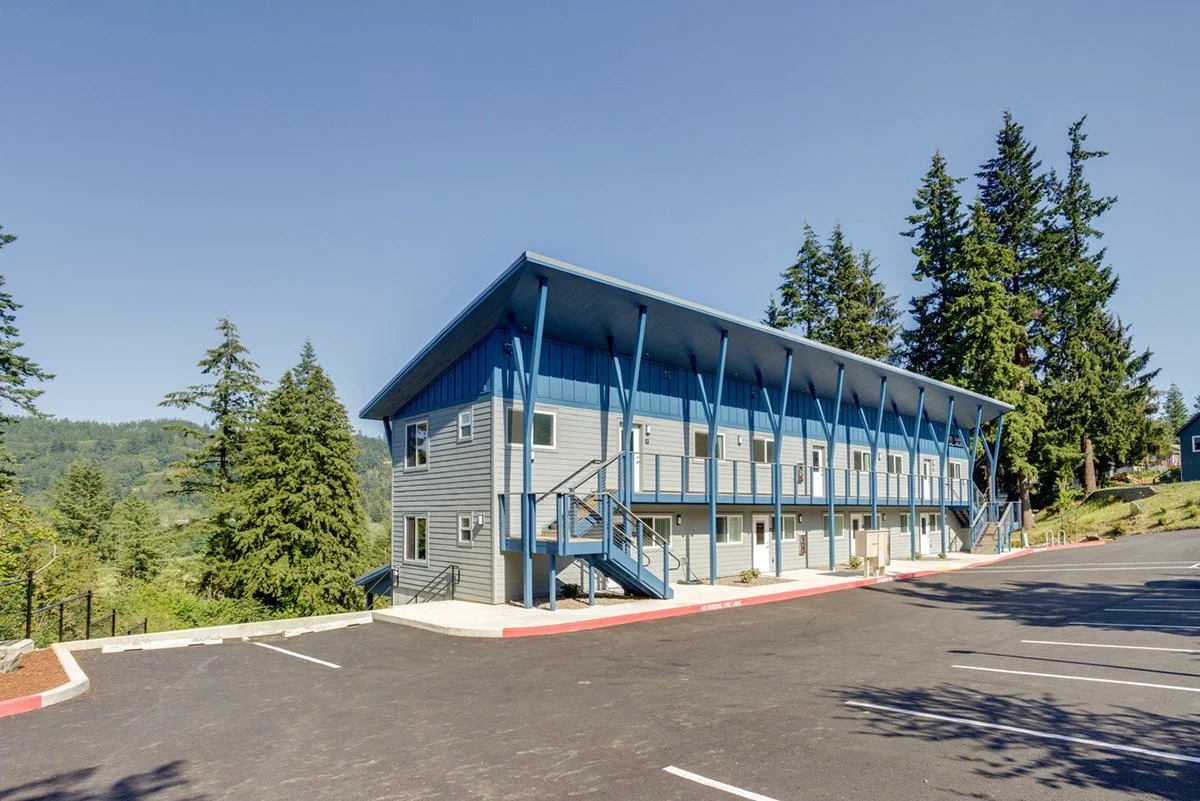
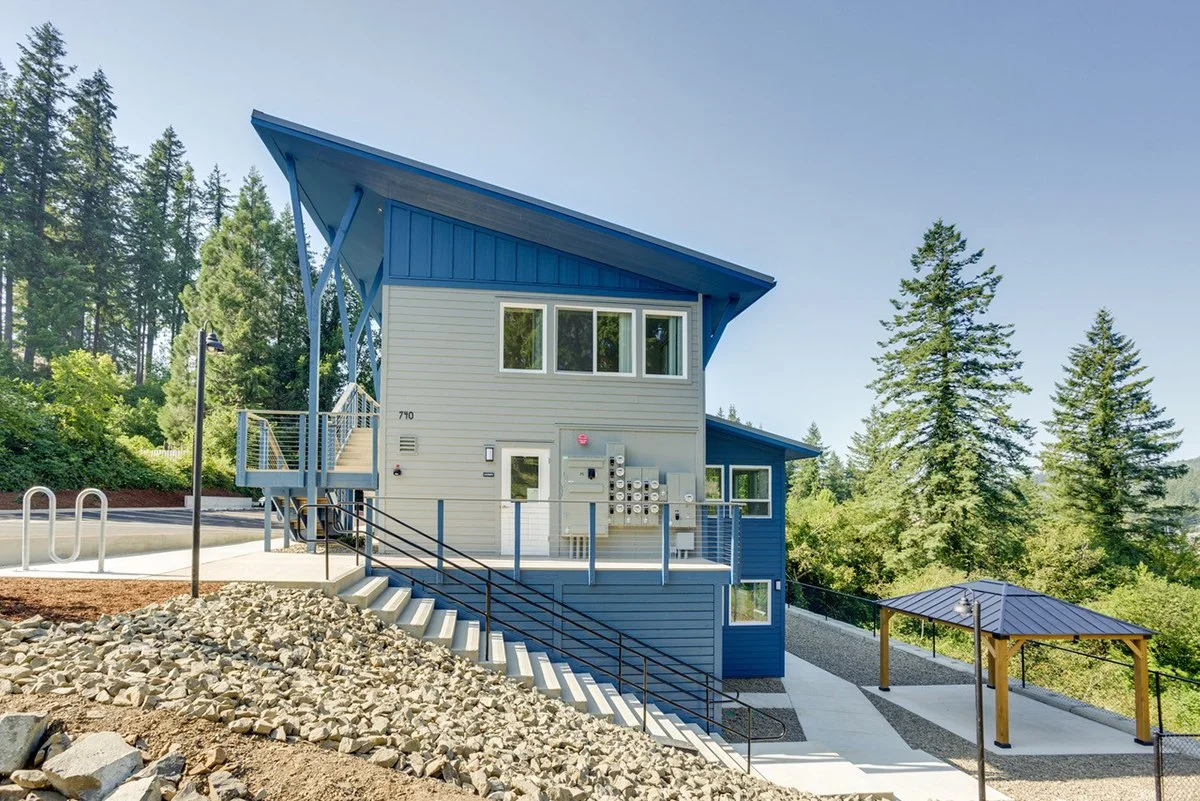
DEVELOPMENT SCOPE
New construction of an 11-unit apartment community that provides affordable and permanent supportive housing for low-income and formerly homeless veterans.
PROJECT OVERVIEW
Veterans are over-represented in both the U.S. homeless population and in the general populations of remote rural communities. In Oregon’s rural Lincoln County, more than one in 10 residents are veterans. Lincoln County’s affordable housing shortage, worsened by devastating wildfires in 2020, is a driver of homelessness for residents who live on low incomes. For veterans, homelessness creates a barrier to accessing essential healthcare and other services.
Located in the small coastal community of Toledo, the Blackberry Hill Apartments provide eleven affordable homes for low-income veterans. Three of the units are structured as permanent supportive housing (PSH) for formerly homeless veterans earning 30% or less of area median income; the other eight are targeted to veterans who earn 80% or less of area median income. Residents who qualify for the PSH units have access to wraparound supportive services provided by sponsor Northwest Coastal Housing (NWCH) and its community partners. Residents also have access to peer support from each other.
Creative Solutions
Finance. Many partners contributed funds to the Blackberry Hill project, which lacked access to capital sources commonly available to larger developments. The project team secured multiple foundation grants and an award of Oregon veterans’ affordable housing funds. The City of Toledo passed a first-time ordinance enabling it to grant the project a valuable systems development charge (SDC) waiver and a grant to support site improvements. State and local government partners provided supplemental funds and resources to offset unexpected financial challenges. Low-interest loans from the Housing Assistance Council, a Washington, D.C.-based CDFI, insulated the project from massive interest-rate spikes affecting other projects during the construction period.
Design and Construction. Capri Architecture maximized views from apartment units of the protected natural area that the site overlooks. NWCH, HDC, Capri, and Meili Construction worked together to keep construction on track despite challenges that included difficult site work and rapidly inflating construction costs. The team succeeded in maintaining special building features that improve energy-efficiency, sound protection, and durability against corrosive coastal weather, such as extra-hefty framing, heavy insulation, and a stainless-steel roof.
Photos by Jason Kaplan, courtesy of Capri Architecture.
SPONSOR
Northwest Coastal Housing
LOCATION
Toledo, Oregon
HDC ROLE
Financial structuring and construction management
DEVELOPMENT PARTNERS
→ Capri Architecture
→ Meili Construction
→ Oregon Housing and Community Services
→ City of Toledo
→ Lincoln County Board of Commissioners
→ Lincoln County Non-profit Fund
→ Housing Assistance Council
→ Meyer Memorial Trust
→ Oregon Community Foundation
→ Three Rivers Foundation
→ Siletz Tribal Charitable Contribution Fund
→ John Reed Foundation
FUNDING SOURCES
→ Oregon GHAP Veteran funds
→ Capital grants
→ Construction and permanent loans
→ Sponsor equity
SQUARE FEET
Total: 6,834
COST
Construction: $3.4 million
Total Development: $4.7 million
TIMELINE
Fall 2019 to Summer 2024
